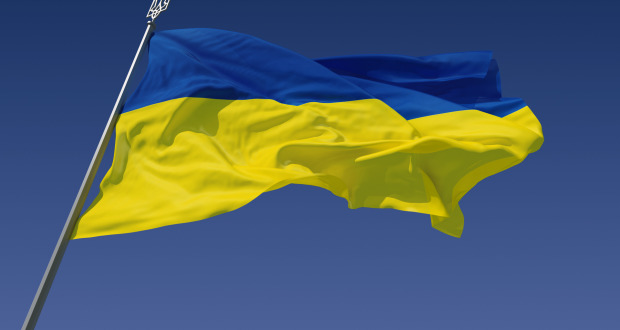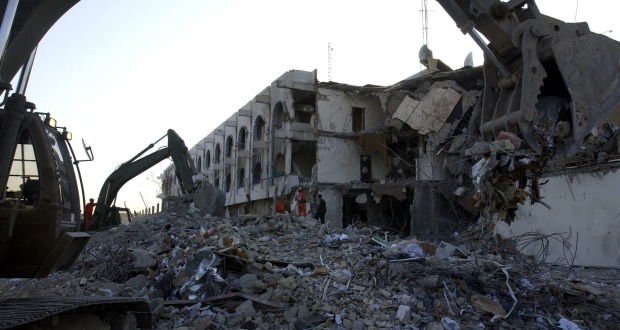October 16th, 2016
By Lily van Egeraat – Research Assistant
As the capital, Tirana exudes an outlook of Albania as a modern, developed country in the Balkans. Young people occupy the countless coffee bars in the vibrant neighbourhood Bllock, modern cars throng the central square and streets are crowded with boutiques. Yet, Tirana’s façade of prosperity and modernity obscures a path of callous repression which was unprecedented for any country in the Balkans, a region whose history is already characterised by its fair share of violence and brutality.
Until thirty years ago, the Bllock area was home to Enver Hoxha, the political leader of Albania who ruled the country with an iron fist for over forty years until his death in 1985.[1] Under his repressive Stalinist rule, Albania was isolated from the rest of the world and the life of the population was controlled by the regime to a degree reminiscent of North Korea today. Food was distributed on the basis of rations, new-borns’ names had to be selected from a pre-approved list composed by the regime, religion was abolished, private property forbidden and any alleged opponents to the regime were imprisoned, sent to labour camps or executed. When the curtains of isolation opened up with the fall of communism in 1991, Albania was the third poorest country in the world. The first steps into the increasingly globalised world plunged the country into anarchy in 1997, when thousands of people were drawn into bankruptcy following a deceptive investment programme from the government. Hence, it was only near the end of the 20th century that Albania could consolidate its power in a pluralist fashion, following a decades-long dictatorship and subsequent break-down of state authority.
Considering the economic and political hardship Albania went through, it has made a remarkably fast-paced transition to pluralist democracy. Whereas Bllock manifested the total antagonistic schism between the regime and the people in the communist era, the mix of public and private spheres and the plethora of buildings painted in provoking colours now represents a stark departure from the former regime. The area serves as a symbol that radical political change is possible. And indeed, nowadays Albania is widely incorporated in Western institutional frameworks. Like its neighbouring countries Macedonia, Montenegro, Kosovo and Serbia, its foreign policy is oriented towards Europe, which has culminated in candidate membership of the European Union. In fact, on certain fronts Albania has even outpaced its neighbours in the region. Most evidently, Albania gained NATO membership in 2009 as the only non-EU member state in the Western Balkans.
Albania’s trajectory on the road to Euro-Atlantic integration reveals several unique features of the country which provide insight into Albania’s (positive) role and influence in the region. First, Albania’s location is noteworthy as it has been a geopolitical asset for many foreign powers, starting with the Ottoman Empire. This derived primarily from Tirana’s position directly linking Byzantium to Rome. Moreover, the gateway to the Adriatic Sea is controlled on the western side by Italy and by Albania on the east. Accordingly, these countries together provide control not only over the passageway but the entire Adriatic Sea.[2] Italian and German occupation of Albania was among others underpinned by these considerations. Hence, while Albania has gone through a period of total isolation, a wider perspective on its history reveals the extent to which it was exposed to a range of cultures and foreign interests due to its location at the crossroad between eastern and western empires. This is also manifested by the mix of religions which have taken hold in Albania, although the predominant religious denominations which are inherited by the Ottoman Empire derive from Islam.
One major contributing factor for Albania’s rapid integration within the Atlantic framework is the close relationship it maintains with the United States. Following the fall of communism, Albania was the first post-communist state in which the US established a military base. From a strategic geopolitical perspective, this was primarily due to Albania’s adjacent location to the former Yugoslavia, from which the US could carry out intelligence gathering operations over Bosnia and Herzegovina and Serbia.[3] The ties were significantly strengthened when the US subsequently spearheaded the NATO intervention in the Kosovo conflict in 1999, liberating ethnic Albanians who strived for greater autonomy within Serbia’s province and were subjected to Serbia’s ethnic cleansing campaign.
While Albania holds the US in high regard because of its defence of Kosovar Albanians in Serbia, fears have been raised over the danger that excessively close links between Albanians across the Balkans can pose. Greece and Serbia specifically have warned against alleged Albanian ambitions to create a Greater Albania, reuniting ethnic Albanians spread over Montenegro, Macedonia, Greece and Kosovo into one Albanian nation state.[4] However, this perception is based on false premises. Since its declaration of independence from the Ottoman Empire at the Conference of London in 1913, Albania has ceased to exist as a state which incorporates all ethnic Albanians in the region. A century later, ethnic Albanians have consolidated separate Albanian identities within the countries in which they reside. Moreover, Albanian administrations have explicitly voiced their opposition to such reunification, most notably when Kosovo declared independence from Serbia in 2008.[5]
The widespread unfamiliarity with Albania has given rise to stereotypical depictions of Albania as a safe haven of organised crime and corruption and as a potential irredentist threat to the balance of power in the Western Balkans. However, in light of its modern history under communist isolationism, it has made admirable progress over less than three decades towards Euro-Atlantic integration. Albania has demonstrated that mind-sets can be changed, that radical political adjustments can be made and that system rigidity can be overcome. Not disregarding the multiplicity of challenges still lying ahead – such as rule of law, democratisation and fighting corruption – Albania’s unique features and remarkable transition path warrant appreciation. For instance, rather than posing a destabilising regional threat through the ambition to solve the ‘Albanian National Question’, it is instead because of the links with ethnic Albanians in the region that Albania maintains positive and friendly relations with its neighbours. In light of the persistent geopolitical importance that the Balkans exerts, Albania’s critical role in the region cannot be overlooked.
[1] Fevziu, Blendi. 2016. Enver Hoxha: The Iron Fist of Albania. London: I.B. Tauris & Co.
[2] Polak, Nathan, Ryan Hendrickson and Nathan Garrett. 2009. NATO Membership for Albania and Croatia: Military Modernisation, Geo-Strategic Opportunities and Force Projection. Journal of Slavic Military Studies 22: 502-214.
[3] Dakovic, Mirko and Boro Miseljic. 2001. Destabilising the Balkans: US and Albanian Defence Cooperation in the 1990s. Independent Center for Geopolitical Studies.
[4] Hilaj, Arjan. 2013. The Albanian National Question and the Myth of Greater Albania. The Journal of Slavic Military Studies 26:393-413.
[5] Vickers, Miranda. 2008. The Role of Albania in the Balkan Region. In: Is there an Albanian Question? Eds. Judy Batt. Institute for Security Studies. European Union.
 Human Security Centre Human Rights and International Security Research
Human Security Centre Human Rights and International Security Research





